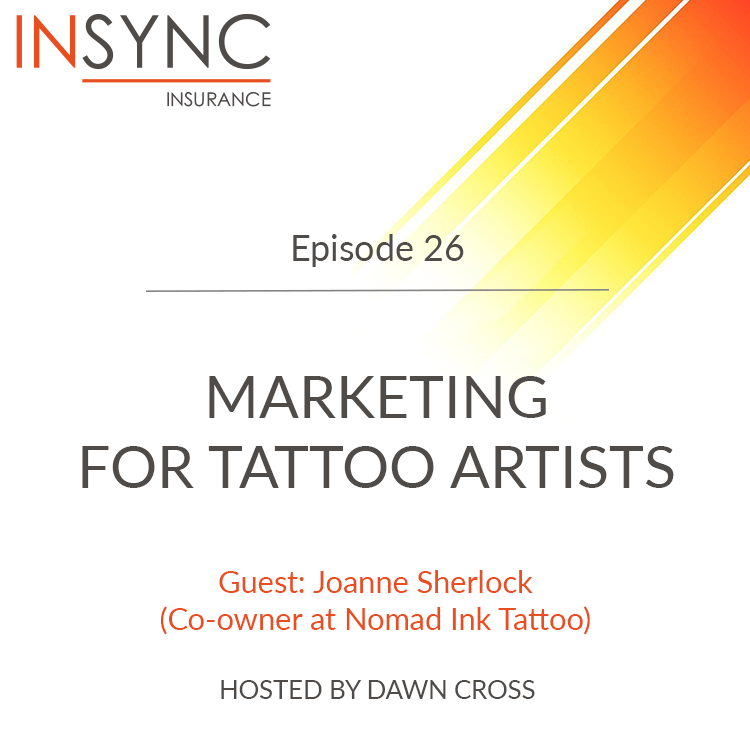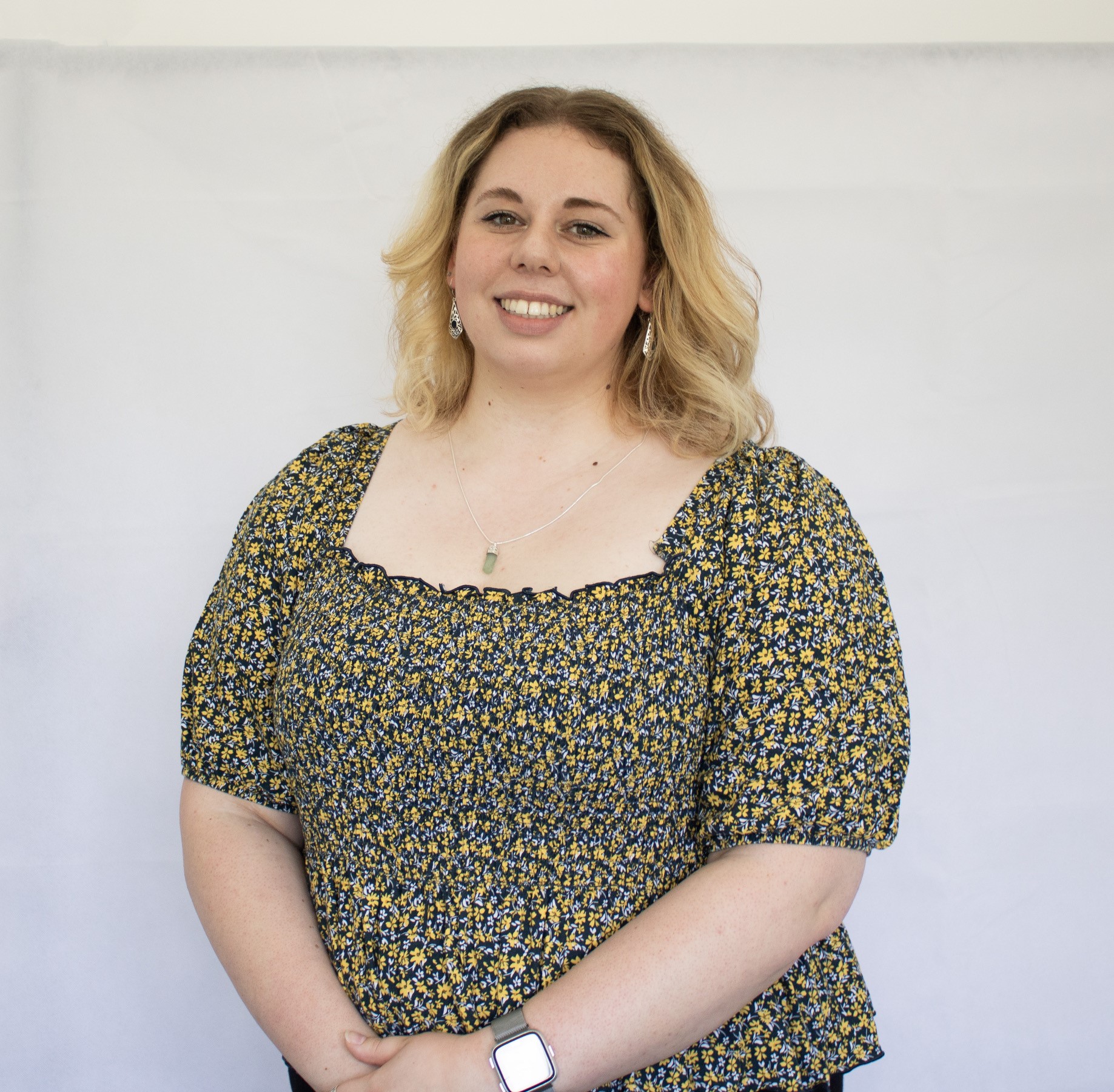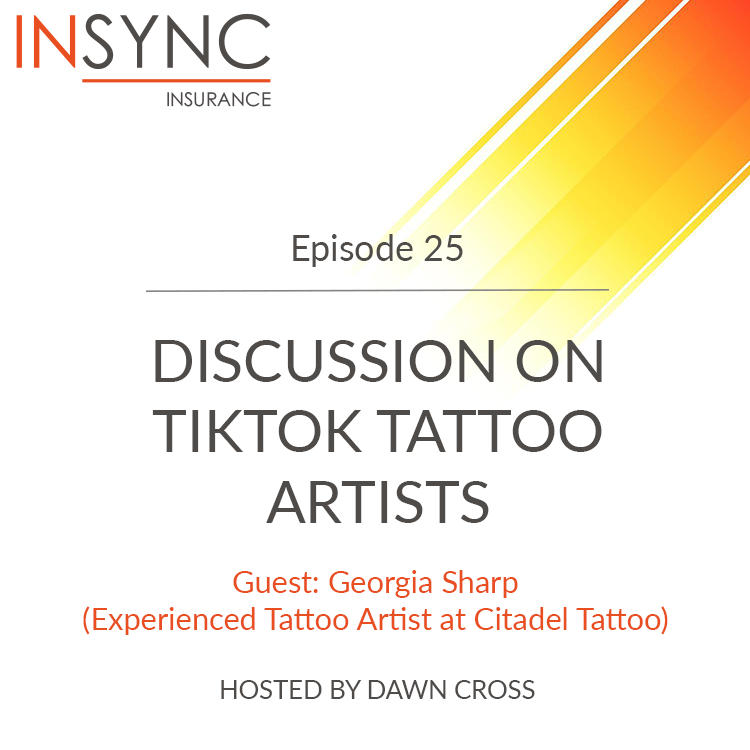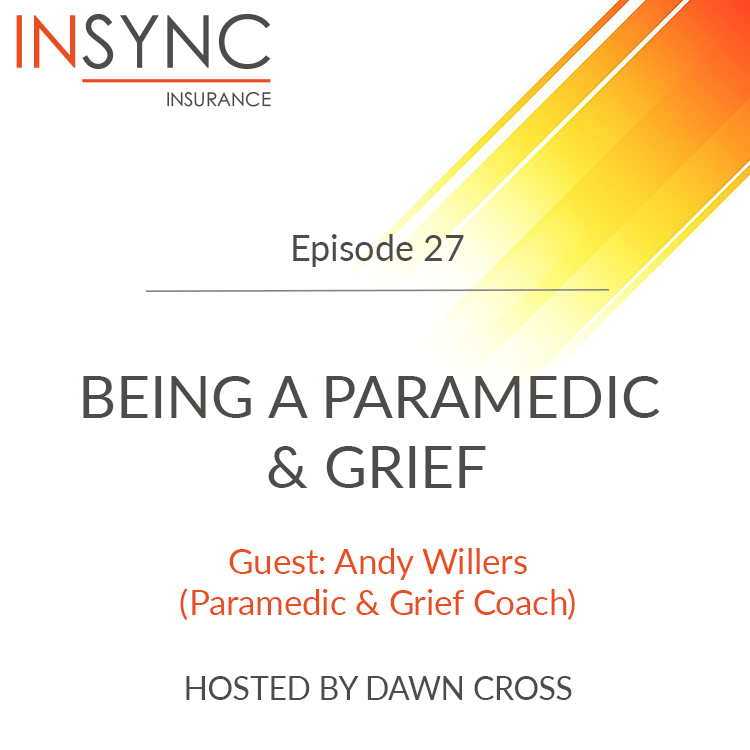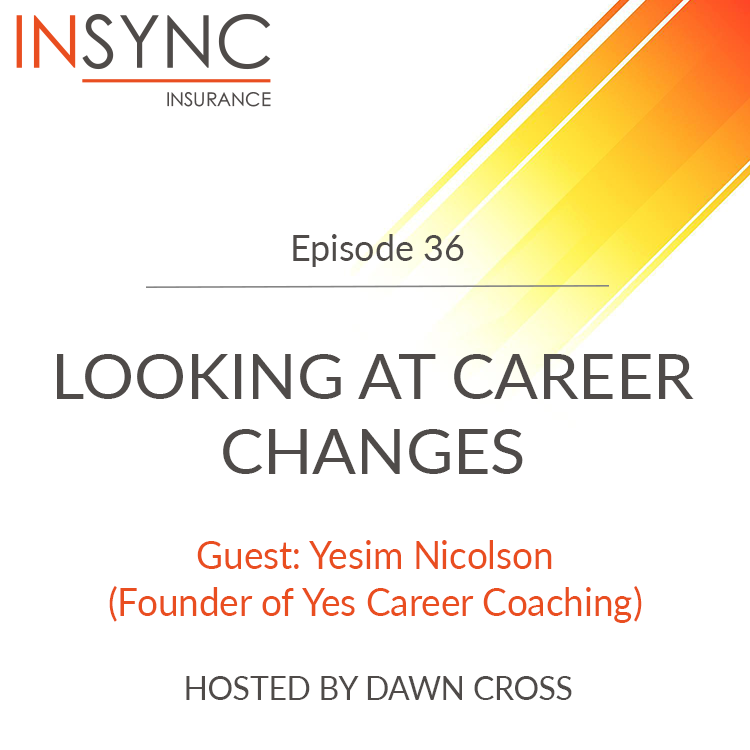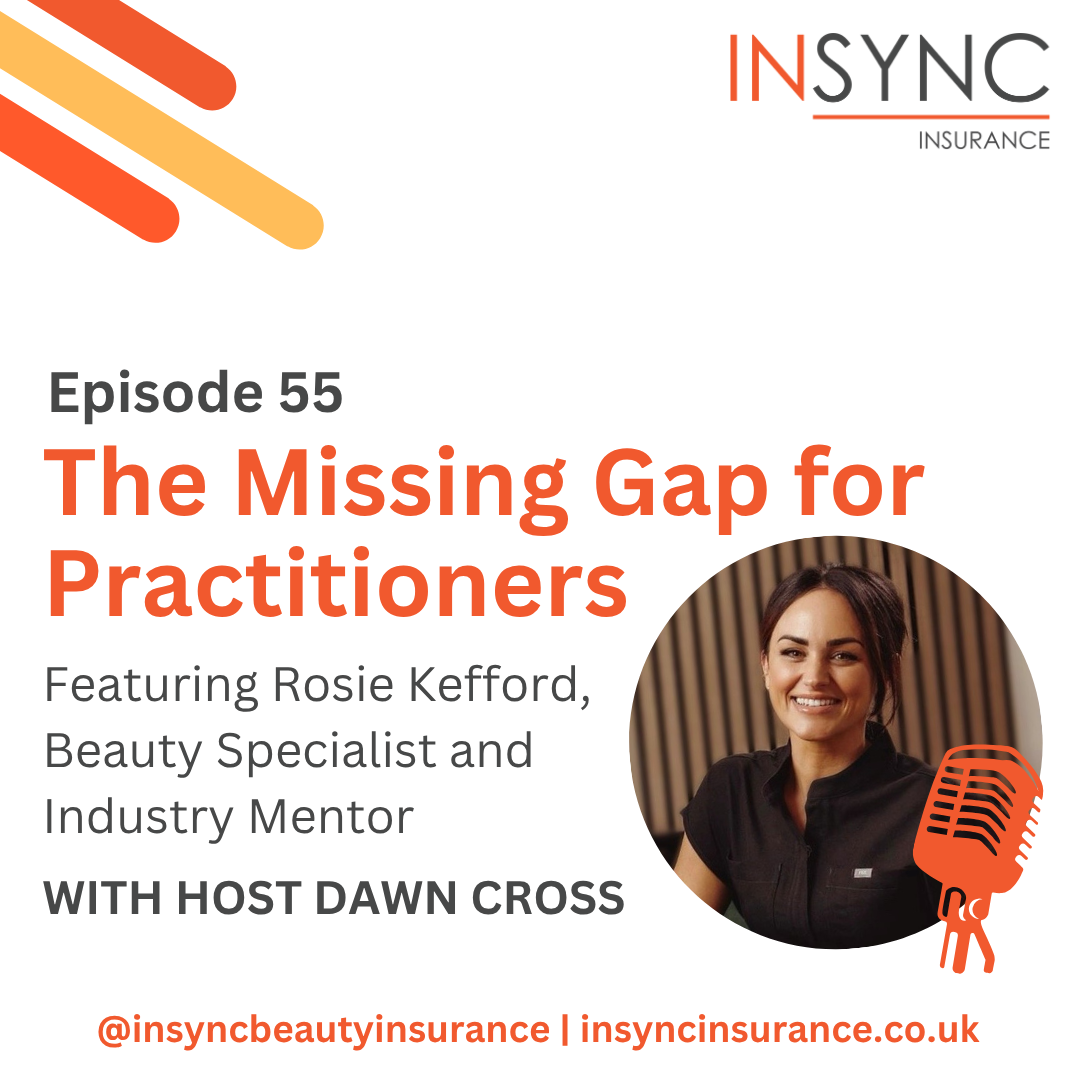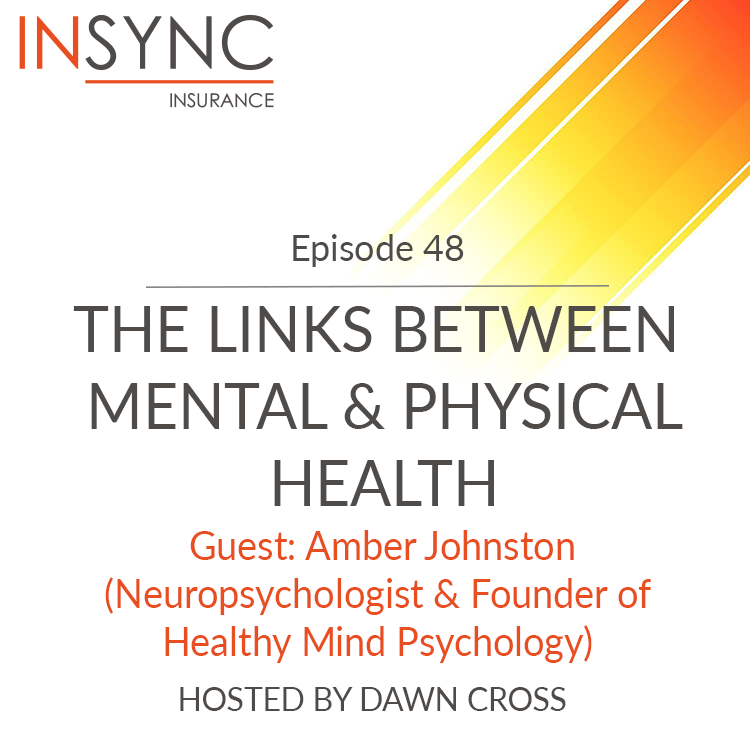Episode Transcript
Speaker 0 00:00:01 Welcome to the Insync Insurance Podcast. I'm your host on cross, and today we'll be discussing marketing for tattoo artists with returning guests, Joe Sherlock. If you enjoy a podcast, make sure to leave a rating on your favorite podcast directory. So welcome back to the podcast. It's really great to have you on for a second episode.
Speaker 1 00:00:22 Thank you.
Speaker 0 00:00:24 So today we're talking about more about like marketing tips, cause obviously you said you were doing, you've started your online degree and you've been doing a lot of the marketing for your own tattoo artists at the studio. So we'd love to talk more about like tips and tricks for tattooists, especially those that have to run like they're on Instagram as well as do everything else on their plate. So how do you, could you tell me a bit more about how you handle the tattoo artist's marketing at Nomad Inc?
Speaker 1 00:00:52 I will, yeah, I, I'd love to be able to say, right, here's a formula, follow that and, you know, all will be well with the world. And I, it's taken me probably about five years to figure out that just isn't the case, <laugh> and that's not for want of looking or want for trying. So, um, I'm not going to kind of, I'll preface this with going, that's not what you're gonna get. Um, cuz I'm pretty sure anybody listening to this, I was already Googled that to see whether they can figure it out and, you know, it doesn't exist. So I'm going to kind of approach this from the perspective of somebody who has tried and failed for probably the first four years. And it's only really been the last year that I've kind of made any headway. Um, and actually what changed wasn't, you know, the platform I was using or the content I was creating, it was the approach, um, that changed.
Speaker 1 00:01:41 So I'll, I'll, I'll approach the subject from there. Um, I would say there are three things that I focus on when looking at marketing my three artists. And also, bear in mind I'm approaching this as a studio, not as an artist myself. That is, first of all, absolutely, first and foremost, there is no point in doing anything unless you have asked yourself what is the point? What is the point? Don't spend your time because time is money. As a self employee, tattoo artist, don't spend your time on any marketing unless you know what the return on that investment is for you. What is the return on that? Um, and you can't possibly know that unless you know who your customers are. So number one is know your customers. Know who they are, know what they want, and know where they are. Um, so, and that includes also if you are with a studio or you have a studio with other artists in it that also includes artists being your customers.
Speaker 1 00:02:45 And I'll, I'll touch on that a little bit later on cause I think it's quite an important thing to consider. Um, so yeah, when you are approaching marketing, the number one important thing I would say to know who your target audience is, um, and know that that can change because you can't set your like business practices and decide what your mix of marketing is gonna look like until you know what that is. Um, because otherwise you're pissing into the wind essentially. Like there's absolutely nothing. You, you're not gonna find the right people if you're not looking in the right places. Um, from a personal perspective, ours changed. So when we were at the beginning and it was just me and one artist, he was with our portrait artist. He does big bespoke work. You know, that might take three sessions to finish full days, it's expensive to get, you know, people are with us all day.
Speaker 1 00:03:39 The business practices were based around providing added value for those people. So we knew who his customers were and what they valued. They valued, you know, great service. Um, a private room, very, very comfortable spaces. So tv, the best furniture you could buy cause you were gonna be sitting in it for eight hours at a time. The ability to pay online, pay it off in bits because it was gonna be x better. All those things we set our businesses practice business practices based on who our customers were at that time. And then over the years we took on, you know, more artists, um, who did different types of work and kind of without me really considering it, our customer base changed. And I would say for the first year of that happening, a missed trick because it just hadn't occurred to me that all these things that I was telling people were great about our business because you get a little bit wrapped up in what's great about your own business.
Speaker 1 00:04:40 So, you know, if you are an artist, you are thinking about what's great about, about what you do. I hadn't had to be stuck to think that the things that I think add loads of value only add value to certain people. So our customer base had diversified, it still included the ones that were there before, but we now had, um, a walk-in artist that could do, you know, quick tattoos that somebody had thought of spontaneously or, um, we had a color illustrator whose turnaround was a little bit quicker and I had to stop and reevaluate who our customers were and actually admit the things that I was saying. These things are really valuable. They're thinking, well then they're not valuable for me. That's no good. I need a different set of business practices to add value, um, for me. So I reassessed those, um, re-identified who the customers were, added the improvements, and then marketed those improvements as valuable assets in the right places.
Speaker 1 00:05:41 So whereas before, this was kind of back in the day where Facebook was a bit more relevant, but I would say Facebook and Instagram to a degree, um, is where I found my customers once I'd reevaluated it and we had grown as a business, um, Instagram took a much bigger role as did TikTok actually, um, and a few other places. So yeah, know who they are, but know that that will change as well. Um, don't do what I did and go, oh, you know, we are great for these people. And then go, oh no, you're not <laugh> <laugh>. No you're not. You've completely missed them, mark. So I would say that's number one. That's how the first thing I think about when I'm trying to market my artists is who are their customers and where are they? Um, the second thing I think is about marketing your work in a way that reflects you as an artist.
Speaker 1 00:06:31 And I consider that as how it reflects as a studio. So if you do, you know, very, I don't know, serene Botanicals for example, don't put heavy metal music behind your videos that you're trying to promote for your work. You know, if you do, um, anime based tattoos, make your edit and your audio for example fit what you do because it's the whole package. People don't look at the beginning of a tattoo video and watch it just because it happens to be a subject that they like. They don't owe you that your customers don't owe you their time. You've got to grab their attention. So just make sure that the way and the places that your market and your work actually reflect who you are as an artist. Um, similarly, if you do all horror heavy black work tattoos, really think about the pace and the style of the edits that you making.
Speaker 1 00:07:32 So I, I'll touch on that a little bit further cuz there are tools that you can use to help with that. You know, you're an artist space, not a content creator. Um, so yeah, know who your customers are, market your work in a way that reflect who those customers are and who you are as an artist. The third thing, and this is probably where I'll, this sounds like it's quite suit studio centric rather than artist centric, but I'll explain how this relates to if you're a tattoo artist. The way I approach the marketing of my artists is I market the studio separately to make it accessible, trustworthy, and relatable because people buy people. And I genuinely believe that customers will get a better tattoo with us than else's wear. I have to believe that it's, from my perspective, that's true. Our artists are excellent. I wouldn't be in this business if that wasn't the case.
Speaker 1 00:08:22 Um, so I had to put myself out there to build a studio. People felt an affinity with. And the artists, they and, and then artists then who were looking for somewhere to grow and invest their career time are gonna come to me. So similarly, if you are an artist looking to push your work, you need to be accessible, trustworthy, and relatable. And if you are working from another studio, it's not your own. Make sure they're doing the same because it reflects, um, there's kind of no point in investing all your time and energies into your own marketing if your studio isn't reflecting what you, what you do, if you see what I mean. So, yeah, so I would say that really, I always try to make sure which artist it is. So I'll post something, make sure they, and they know which artist it is.
Speaker 1 00:09:11 This isn't, you know, this has to be focused on the artists. It's only fair they pay me to do that. Um, and how you approach, it'll depend on your approach as a studio. So we want studio, we want customers trust regardless of which artists are working here. Which again, like I say, sound studio centric, but it's not cuz I'll explain as a studio, my artists are my customers. The customers who get the tattoos, they're the artist customers, the artists are my customers. So that's how I approach it with my, um, artists. Um, so great tattoo artists are locked into exchange their career time and money with me. And they need a product in return. And a room with a sink and a bit of a vague license with no restriction with, you know, from the, from your local council isn't a product. They can get that anywhere.
Speaker 1 00:10:02 They can set up a room anywhere they want. So purely from a marketing perspective what they want as a studio with consistent and forward thinking promotion activities that builds trust with their audience and then a service to back it up. And our position in the minds of our target audience has to align with the artist's work and that takes mindfulness and strategic marketing decisions. So for us, I would say I, I make sure that I use professional equipment, I use professional software to film and photograph the artist's work for almost every tattoo and then edit that work in line with how I plan to use it to further promote the studio and the artist. Um, so for example, pictures, they're always simple edits. This is something all artists can take on. You do not need a lot of knowledge with kind of digital manipulation to do this cuz you should not be digitally manipulating pictures.
Speaker 1 00:10:51 Um, pictures of simple edits are posts like bored on Instagram for example is our gallery I suppose. Um, so I'm careful to make sure that I show fresh work healed work finished tattoos that are set against the digital design so that customers can have a look at the artist and go, well, can they achieve what they're putting out as designs? That's really important. Um, it's mostly only background edit. So I'll pull the like exposure and the clarity of the background down to you know, put the artist's work front and foremost that really is all it needs. Particularly with collar work. You can't really desaturate it anyway. Might take a little bit of redness out the skin, but other than that, heavily editing your pictures in particular as a tattoo artist is completely counterproductive cuz what happens then is you don't achieve that. You don't achieve what you've produced digitally and then you've got customers that are unhappy with what they get.
Speaker 1 00:11:53 You can't miss sell your customers. You need to manage their expectations because skin is not paper. Um, so that's another tip that I would say <laugh>, stop doing that. Stop pulling your saturation. We can all see you've done it <laugh>. It's, it's no good at all. I definitely don't do that with ours. Um, I approach our video whether it's the same. So I have a look at the footage and I'll think about do I want this to be short and snappy video? Do I want it to be a bit more longer movie-like with lots of transitions and audio layers? Um, it might be, I might use the footage I've taken as a visual that sits in front of a funny or informative voiceover. There are lots and lots of different ways to push it and then I'll post them at strategic times kind of based on my experience, the different, the different platforms. Um, so that's how I handle it as a studio. If I was gonna be an artist doing it on my own, that's exactly how I would be doing it. Um, I'd be keeping it simple. I would be thinking about what I want to produce before I started filming it or photographing it because otherwise you're spending a lot of time um, and you're not getting any outcome.
Speaker 0 00:13:02 Definitely I think it was key is what you said about editing the photos cuz people could come round and accuse you of basically almost misselling what you can actually do as well, which could lead to like someone might actually sue someone over for you know, obviously it takes a lot of work to get to that point, but you need to make sure that you're being as truthful as you can for this photo. Yeah.
Speaker 1 00:13:22 And save yourself the problem if you work in color, for example, if you are, oh if you are pulling all the color out of your pictures in that you are making it brighter. So you're make up in the vibrance, you open the saturation,
Speaker 1 00:13:35 You've got to then achieve that in your next tattoo healed. You've got to achieve it healed in your next tattoo. So if you are shooting your images in raw, which I do cuz they use professional cameras, professional software that flattens the images, you do have to rebalance it sometimes um, I pull the artist in and say, does this to you? Does this look like the way the tattoo did when it was finished? And involve them in that process because otherwise what I'm doing is I'm asking customers to come to them and giving them an impossible task. Um, because skin is not paper. This is not all your paint, you know, this isn't saturation is difficult and you've got to be truthful about what your artists can can achieve. Um, if your customers are looking at actually achieved images, sometimes taken by customers cuz I share them as well, you know, no fancy edits.
Speaker 1 00:14:29 If they're coming to you and that's all you're posting, then you're obviously good enough. Um, you are setting yourself up to fail <laugh> if you heavily edit your pictures, you see a lot of black and gray work almost taken in the dark. Like you see these videos and they, they've turned the exposure right down because, well I dunno, there's probably lots of reasons for that that I won't go into. But with the turn the exposure right down, turn the saturation all the way down to black and white and you think everybody looking at that, you know the skin's gonna be a bit red. It's a tattoo. They've just sat for eight hours and had this skin stabbed with lots of different needles. It's gonna be a little bit red. So, you know, don't let the red dis detract from how good the work is. You can, you know, take some of that out as long as it doesn't change the look of the tattoo so much. Um, but don't fully desaturate your tattoos. Nobody's skin is that white. Mm-hmm <laugh>.
Speaker 0 00:15:26 No, that's definitely key. So, um, moving on, what platforms do you think are best for anyone starting out as a tattooist at the minute that'd be good for them to create an account on?
Speaker 1 00:15:38 Okay, I've been a bit more specific with this cuz this I think warrants it. I'd be suggesting different things for Artisan Studios, but I'm gonna approach this as if advise and a tattoo artist who is either new or, or hasn't really got on hold of their marketing yet. If you can have only one social media platform, if that's all you've got the capacity for, have Instagram right now at the moment, that'll change. But support it with keeping your finger on the pulse of its algorithm and what's popular. There are some really great creators on YouTube, um, whose videos are really gonna help with that cuz it is just not possible to do it yourself. You're a tattoo artist, you're not a content creator, you know, that isn't your job. So tap into people whose job that is, um, and take their advice. There's a, a lady called Katie Stackley, she's probably my favorite on YouTube.
Speaker 1 00:16:29 Um, she is a content creator and she focuses heavily on the algorithms and, and really usable hints and tips and tricks for the, for particularly Instagram and YouTube. So check hair out, don't try and figure it out yourself, but just, you know, once a week have a look on YouTube in particular and see what people are saying. What that'll help you to do is to utilize all the features and tailor your content accordingly. So you're not looking to be a slave here to what Instagram have decided is gonna be part of their algorithm this week. That wasn't next week. Who has got the energy for that? Not me, but it just means that you can utilize and tailor your content accordingly. So you've got your stories, your reels, your posts, your featured stories. If Instagram has decided that reels are the thing that they're really pushing that week, just do that. Just stop fighting it. Just do that. Play the game. Um, what you don't wanna do is be doing that and actually they've decided that carousel images are the things that they're gonna be pushing for the time. Um, and you've wasted your time. So it's not in order to be a slave to it, it's in order that you're not wasting your time. Get your return on your investment. So if you can only have one, start with Instagram,
Speaker 1 00:17:46 A above and beyond that, what you have after that actually can depend on your niche as an artist. So artists who specialize in gaming for example, or do like anime based tattoos, there's platforms that they can use such as Discord to really grow a community. But there's just no point being on there if you are not doing that. If you are doing portraits of old movie stars, you know, don't waste your time with that. Our p for example, our body psa, she's a cosplay creator as well. Um, you'll find that artists are quite often creators in other mediums and she is a cosplay creator. She relies heavily on TikTok and that, you know, corresponds to the hip peers some work as well. So if you've got a niche as an artist after Instagram, think about that. Think about, um, the platforms maybe that you use for leisure.
Speaker 1 00:18:38 That might be Discord, it might be TikTok. Um, think about those. If you've got a niche, if you're not all as niche as that and you could only have two platforms and I I'm gonna expose myself a little bit here, um, go to YouTube, we don't have one and we really need one. It's not something that I've got a hold of yet, but there is, there are lots and lot of people way more knowledgeable about this than me that are saying when all is said and done, YouTube is still growing and particularly long form content, really it's the only place people are gonna make take any notice because if you are on YouTube looking for content, you are lo not looking for a nine second viral video. You are happy to really absorb the content that people are creating. They've also balanced that out with shorts, um, which is much more closely aligned with like the, the Instagram stories and the TikTok. I would say you could have two and you're not niche. Have Instagram and have YouTube.
Speaker 0 00:19:38 That sounds really key. And as well, I think it relates back to your first points with our first question. Basically you need to be going where your audience are based at and that includes what platforms that you choose. And you don't have to have all of them to reach them. You just gotta be select and actually, or be very fruitful.
Speaker 1 00:19:58 Yeah, I would say don't have all of them. Nobody can keep up with that. This is my full-time job. I'm not even an artist. So when it's an artist's, when you have a self-employed artist and you're trying to do it all yourself, you just couldn't possibly do a good job on all of them. It wouldn't be possible. I can't do a good job on all of them and it's my job to do that for my artists. It begs the question of Facebook, because that's one that people ask me a lot, should I bother? The answer is I don't know. But I will tell you what I, my approach to Facebook is our artists have their own personal Facebooks and they can post to those or whatever they like. Um, I manage personally one of our artists social media as well as the studios. And my approach to his Facebook is a kept on a personal, there was no point going to business because n nobody looked at it.
Speaker 1 00:20:51 Nobody pushes it. You don't get any views, you don't, it's, it's pointless. It's really, really good for people that you know vaguely or well share in your work, mention in your name. If somebody goes, anybody know a bat tattoo artist, it's great for that. It's not really great for anything else. I doubt I've had a new customer from Facebook in the last two or three years. They all come from Instagram and TikTok really. So if you're looking to set up or grow, I personally would forget about Facebook. Um, if you've already got a personal Facebook, you may as well use it, host pictures of your tattoos, you know, people might recommend you. Um, but I wouldn't get too stressed about that at all. Um, what it doesn't mean, looking back at Instagram particularly and having to consider the algorithm and you know, all that, there's a lot of faffing that comes with it. It doesn't mean that you're selling out to Instagram or you know, getting on some bandwagon that values popularity over substance. But if you know what works, you can present your substance to people who actually want to see you and your auntie in a different county on your Facebook couldn't care less about your substance and you're already popular with them. So don't worry too much about that <laugh>. Um, I, I would, I would focus elsewhere.
Speaker 0 00:22:18 Uh, that's brilliant as well. Uh, do you have any tips for how artists can build up their followers?
Speaker 1 00:22:24 Yeah, I, yeah, I can't. It's, it's really, really difficult. It used to be you used to be able to buy followers and you know, that would be fine. Now I think what is really key to remember is that if you are looking for a retail on your investment and your time is an investment, remember that followers do not mean revenue to don't get caught up in, oh this tattoo artist has got 20,000 followers or 30,000, 50,000 or a hundred thousand. Don't get caught up in that because if you do, what happens is you end up on this train of desperately trying to keep all those people happy, not losing followers and still feeling like you need to gain more. So what you end up doing is what is popular and not what makes you money. You're not here to provide free entertainment 100% of the time.
Speaker 1 00:23:16 You need to be entertaining, otherwise you're not gonna have anybody watching you. And that's important because then when you do post something that you are hoping generates more work, you need to have a reach. So you have to have achieved it somewhere. You have to have been entertaining and informative 80% of the time so that when 20% of the time you put an out the box are open, look at what I can do. Look at how magnificent I am. People are are actually looking at it. You've got some reach, but don't fall into the trap of think in that followers are gonna make you more money because they're not engagement. It's gonna make you more money. Um, so the thing to remember, I think that when build and followers is to remember that platforms will change. What's popular will change how people access and digest information will change.
Speaker 1 00:24:04 But what won't change is why people should choose you. Good content and good work. So spend less time worrying about whether you should be making a nine second, second like these viral dance videos on TikTok and somehow weave in your excellent tattoo into this video. Spend that time perfecting your craft and presenting it in a way that when someone does land on you, they find work that's better than the other person they were considering because they were considering somebody else as well. They haven't, they're not only considering you, um, you're not looking to please everybody. You're looking to please the people who are looking for what you do. So be a little bit real people by people. So they need a face. And essentially as a studio, that's all I am. Um, artists tend to be quite shy and I get that there's a, a common introvertness about artists that I've met and they find it really difficult to sit in front of a camera and to speak into it and to put themselves out there is the face of their own brand, the face of what they do.
Speaker 1 00:25:10 I cannot insist enough that people by people and if people already feel like they've got a bit of a mate that works somewhere, that will look after them when they come there. Cuz of course you will, you know, I'm sure you know, you're an excellent artist, you'll look after them, but if people already feel like they've got a bit of an in, they're gonna contact you if you are faceless. But do good work. There's loads of good artists that are also faceless. So go be a good artist. It's got a bit of a, a bit of a friendly face and it makes you much more accessible. Um, so yeah, balancing that with being an artist's face, not a content creator is quite difficult. But believe me, um, put your face out there because people engage with it. They're the the things that do the best.
Speaker 1 00:25:55 Um, I would say, I would also say don't be tempted by, you'll get emails and dms all the time. Go in, let me, I'll get you 10,000 followers and it'll cost you this much. They're fake. And I'm gonna tell you a story that we emerged on the right side of and you'll be glad you did it if you did the same thing about probably two years ago. Um, I logged onto Facebook and all I could see all over it was everyone going, oh my god, I've lost 10,000 followers overnight. I've lost 15,000 followers overnight. What's going on? What's happened with Instagram? And I'm thinking, oh my god. So I went into our followers and I hadn't lost any followers, actually I said a lie, I lost two, I lost two followers. We were small enough then that I knew exactly how many followers we had and we lost two.
Speaker 1 00:26:41 And I thought, oh well, well whatever's happened with Instagram that hasn't reached us yet. I wonder what that is. Anyway, later on that afternoon, Instagram released the fact they did a press thing, released the fact that actually what they'd done is they had paged all the fake accounts they could find. They paged them all. So all these creators that had come out and gone, oh my goodness me, I've lost all these followers overnight. Actually it just outed themselves. <laugh> as being people who over the, you know, previous years had bought followers and they were all fake. Um, and it massively impacted them. And I gave myself a little pat on the back and went, well done Joe. It was a few years ago. Your little 2000 followers are obviously 2000 people who are potential customers of yours because they're real people and they're engaging with you and that's why they're followers.
Speaker 1 00:27:31 Most artists are very good at digital artists, so they're not gonna have any issues using Photoshop, um, Lightroom, anything like that. Particularly Photoshop for putting, um, advert together. So picture based advert, not video based A that's all very well and good use Canvas <laugh>. It's not as professional as something like Photoshop, but it is super quick. And if all you are trying to do is put a collection of images together because you're trying to sell some flash, don't faff with Photoshop that's going take forever. Go drop them into a template on Canvas or get Canva Pro, it'll cost you 10 in a month and make things a little bit more unique. But I cannot begin to tell you how much time that is saved. It also has a scheduling tool now Canva Pro. So you can make them, you can e enter them into the um, scheduling tool and it'll post them at a time in a day, um, that suits.
Speaker 1 00:28:25 You use that because what you don't have is hours and hours a day to create all this content you need to get it out while it's relevant. Um, and you need to speed that process up. So use Cam and either use their schedule and tool or use another schedule and tool. If you are a one man artist, um, you can use it to get them for free. So places like Hootsuite will let you do so many platforms with their schedule and tool for free. So if you are only looking to <unk> to post to Instagram and I dunno, maybe it is Facebook or maybe it's TikTok, you won't even need to pay for it. Um, it just means that at eight o'clock at night when you're trying to have your tea or you're trying to put your kids to bed or you're trying to work on the design for the next day, um, you're not also trying to post your content online.
Speaker 0 00:29:13 Ah, that's really cute. And I wanted to say as well, uh, referring back to people buying followers, uh, last I read, Instagram does actually punish accounts that do just suddenly have a bunch of fake followers, uh, following them and they will be shown less in the algorithm. So the discover page where obviously where people go look at things or search for things, you'd be less likely to show up and then you're less likely to actually appeal to proper client or potential clients as well.
Speaker 1 00:29:42 Yeah, you're absolutely right. And the thing is, you can be shadow banned even for the most innocent of reasons I have been. And what that means is, um, they just stop putting it in front of people that are previously aging. You don't know what's happening. You've got no idea why small things like not keeping on top of how many hashtags they're expecting you to use and get your shadow ban because Instagram will change it at to, it used to be, you know, you did 15 hashtags, that's what you had to do. And then suddenly over 90 we did more than five, they considered it spam and all of a sudden you've got no engagement because they've shadow banja. So if they're gonna do that, they're definitely gonna do it. If you've got 2000 followers one day and 5,000 the next week. So you're absolutely right.
Speaker 1 00:30:23 Um, and so they should really, because, you know, without that then they haven't got any authenticity as a platform. Um, so yeah, that takes the pressure off artists and or the content creators really. Um, you're better off with engagement than you are. Like our Instagram stories for example, we get about 10% engagement. Um, that's actually really high. I would rather have my, you know, little 7,000 followers and 10% of them are engaging with our stories, um, than 20,000. That lots a little bit fancy, but it means nothing. It's not gonna make me or my artist anymore.
Speaker 0 00:30:56 Mm-hmm. Definitely. Well, is there anything else you'd like to add before we wrap up the episode?
Speaker 1 00:31:02 Um, no, I don't think so. I think I suppose just to round up, just add value that's, you know, your customers don't owe you their time, they don't owe you their online time or their head space at all. You know, everyone's bombarded with ads and everything else. Um, make sure you give in more than you're asking for. So give information, give entertainment if that's what you know, if you are like a phony, quirky personality and you wanna do that, then do that give 80% of the time and only ask to take back about 20% of the time. So, you know, post your actual work, um, with lots of captions about how your books are open and prices and trying to fish for work much less than you think you need to. Um, if you're gonna post your work, it can just be with the thanks very much for luck, thanks very much to this customer you are giving then, um, don't always be looking to take because people switch off.
Speaker 1 00:31:57 So I would say that's one of them. Um, and have a bit of a brand personality as well. Kind of be real, um, but not grumpy. I do you see that a little bit. You see people, they'll call out certain types of customers or they'll have a certain political view or I've even seen racism and sexism on, you know, people's, um, Instagram accounts and you think, you know, if have a business personality, but let's not alienate people. That's, you know, that's not helpful. So I would say kind of as a round or, um, that would be it. Give more than you take, um, and focus more on your work than you do on worrying about what this particular platform's doing on this day or that day. Um, because that's gonna be the thing overall that people come to you for.
Speaker 0 00:32:42 Definitely. Well thank you so much for coming on today. It's been really great to pick your brains on the marketing side of tattoo studio.
Speaker 1 00:32:50 Pleasure. Thank you for having me.
Speaker 0 00:32:53 Thank you to my guest today, Joe Sherlock for discussing her experience and tips for how to market yourself as a tattoo artist. If you're interested in learning more about the studio, please visit the link in the description. I have been your host on Cross in Chin next week for another episode in Zinc's, one of the UK's fastest growing insurance providers offering comprehensive of cover the SMEs and self-employed across the uk. Our expert team can tailor your insurance to meet to individual business needs and compare prices from all Lloyds of London approved partners. We offer a five star service and have been FIFA Platinum trusted winners four years in a row.
